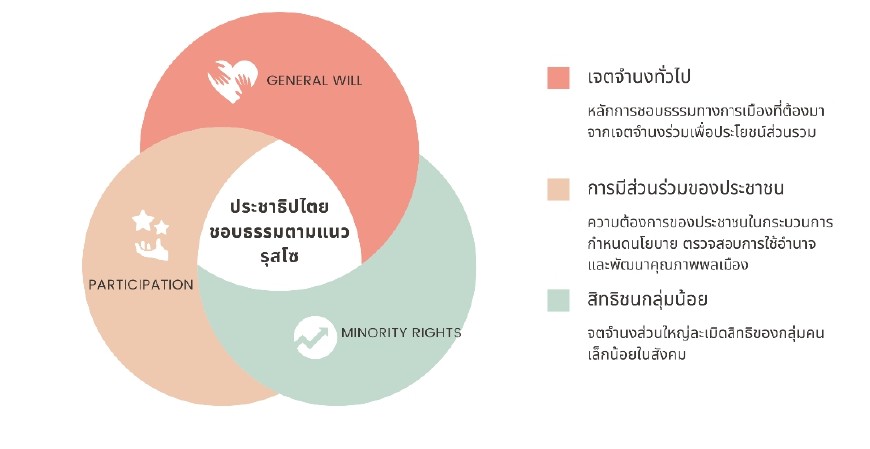JEAN JACQUES ROUSSEAU AND THE LEGITIMATION OF DEMOCRACY
Keywords:
General Will, Political Legitimacy, Political Participation, DemocracyAbstract
The purpose of this article is to study the concept of Jean-Jacques Rousseau on Establishing Legitimacy in Democracy Analyzed from his important writings, such as the Community Contract, in which Rousseau proposed that political legitimacy should be based on the common will, which is the will aimed at the common good of all people, not just the inclusion of personal interests. This concept is important for the development of modern democratic theory, especially in the areas of political participation, equality, and the balance between freedom and equality. However, it also points to the challenges of applying Rousseau ideas to contemporary society, such as consensus building in a multicultural society, the risk of majority oppression, and limitations in creating political participation in large societies. In addition, it analyzes political case studies such as the Brexit referendum and the Black Lives Matter movement, reflecting the complexity of applying the concept of common will. balancing direct and indirect democracy and protecting minority rights through legal mechanisms and promoting a culture that respects human rights. Although Rousseau's ideas have some limitations, they still play an important role in building a legitimate and sustainable democracy today.
References
Bertram, C. (2017). Jean Jacques Rousseau. In E. N. Zalta (Ed.), The Stanford Encyclopedia of Philosophy (Summer 2017 ed.). Retrieved January 11, 2025, from https://plato.stanford.edu/entries/rousseau/
Cohen, J. (2010). Rousseau: A Free Community of Equals. UK: Oxford University Press.
Cohen, J. (2020). Democracy and plurality: Addressing the challenge of majority tyranny. Political Theory, 48(2), 167-189.
Davis, R. (2020). Civic Education in Modern Democracy. Journal of Political Science, 45(2), 156-178.
Fischer, M. (2021). Innovations in Democratic Participation. Democratization, 28(4), 789-806.
Kymlicka, W. (2018). Multicultural citizenship: A liberal theory of minority rights (2nd ed.). UK: Oxford University Press.
Martinez, R. (2021). Institutional safeguards against majority tyranny: Contemporary perspectives. Journal of Democracy, 32(1), 78-92.
Neuhouser, F. (2008). Rousseau's Theodicy of Self-Love: Evil, Rationality, and the Drive for Recognition. UK: Oxford University Press.
Pateman, C. (2012). Participatory Democracy Revisited. Perspectives on Politics, 10(1), 7-19.
Simpson, M. (2006). Rousseau's Theory of Freedom. USA: Continuum Studies in Philosophy.
Smith, G. (2019). Democratic Innovations: Designing Institutions for Citizen Participation. UK: Cambridge University Press.
Taylor, C. (2019). Democratic legitimacy in multicultural societies. Political Studies Review, 17(3), 267-281.
Warren, M. (2017). A Problem-Based Approach to Democratic Theory. American Political Science Review, 111(1), 39-53.
Wilson, S. (2022). Digital democracy and citizen participation: Innovations in contemporary governance. Government Information Quarterly, 39(1), 101-115.
Young, I. M. (2018). Inclusion and Democracy. UK: Oxford University Press.

Downloads
Published
How to Cite
Issue
Section
Categories
License
Copyright (c) 2025 Academic Journal of Political Science and Public Administration

This work is licensed under a Creative Commons Attribution-NonCommercial-NoDerivatives 4.0 International License.




